Affiliate Marketing Programs: A Comprehensive Guide

Affiliate marketing programs have gained immense popularity in recent years as a lucrative way for individuals and businesses to earn passive income. This comprehensive guide will provide you with an in-depth understanding of affiliate marketing programs, how they work, and how you can leverage them to maximize your earnings.
- What is Affiliate Marketing?
- How Does Affiliate Marketing Work?
- 1. Merchant:
- 2. Affiliate:
- 3. Consumer:
- 4. Affiliate Network:
- Benefits of Affiliate Marketing Programs
- For Affiliates:
- For Merchants:
- Choosing the Right Affiliate Marketing Program
- 1. Product or Service Relevance:
- 2. Commission Structure:
- 3. Affiliate Support:
- 4. Tracking and Reporting:
- 5. Payment Terms:
- Best Practices for Successful Affiliate Marketing
- 1. Choose Quality Products:
- 2. Build a Strong Online Presence:
- 3. Leverage Multiple Marketing Channels:
- 4. Engage with Your Audience:
- 5. Stay Updated with Industry Trends:
- In Conclusion
What is Affiliate Marketing?
Affiliate marketing is a performance-based marketing strategy where an affiliate promotes a product or service on behalf of a merchant and earns a commission for every successful referral or sale. It is a win-win situation for both the affiliate and the merchant, as the affiliate gets rewarded for their efforts, and the merchant gains exposure and increased sales.
How Does Affiliate Marketing Work?
The process of affiliate marketing involves four key players: the merchant, the affiliate, the consumer, and the affiliate network. Let's take a closer look at how each of these players interacts in the affiliate marketing ecosystem:
1. Merchant:
The merchant, also known as the advertiser or the retailer, is the party that sells the product or service. They create an affiliate program to attract affiliates who will promote their offerings. The merchant provides the affiliate with unique tracking links or codes to track the referrals and sales generated by the affiliate.
2. Affiliate:
The affiliate, also known as the publisher or the promoter, is an individual or a business that promotes the merchant's products or services. The affiliate earns a commission for every successful referral or sale made through their unique affiliate links or codes. Affiliates can promote products through various channels such as websites, blogs, social media, email marketing, and more.
3. Consumer:
The consumer is the end-user who clicks on the affiliate's promotional content and makes a purchase or completes a desired action on the merchant's website. The consumer is not directly involved in the affiliate marketing process but plays a crucial role in generating revenue for both the merchant and the affiliate.
4. Affiliate Network:
An affiliate network acts as an intermediary between the merchant and the affiliate. It provides a platform where merchants can list their affiliate programs, and affiliates can find suitable programs to join. The affiliate network also handles the tracking, reporting, and payment processes, making it easier for both parties to manage their affiliate marketing activities.
Benefits of Affiliate Marketing Programs
Affiliate marketing programs offer numerous benefits for both affiliates and merchants. Let's explore some of the key advantages:
For Affiliates:
For Merchants:
Choosing the Right Affiliate Marketing Program
When it comes to selecting an affiliate marketing program, it's essential to consider several factors to ensure a successful partnership. Here are some key aspects to evaluate:
1. Product or Service Relevance:
Choose an affiliate program that aligns with your niche or target audience. Promoting products or services that are relevant to your audience increases the chances of generating sales and earning commissions.
2. Commission Structure:
Review the commission structure offered by the affiliate program. Look for programs that provide competitive commission rates and fair compensation for your efforts. Some programs offer a flat fee per sale, while others offer a percentage-based commission.
3. Affiliate Support:
Consider the level of support provided by the merchant or the affiliate network. Look for programs that offer marketing materials, training resources, and dedicated affiliate managers who can assist you in optimizing your promotional efforts.
4. Tracking and Reporting:
Ensure that the affiliate program provides robust tracking and reporting tools. Accurate tracking is crucial to monitor your performance, track conversions, and calculate your earnings. Look for programs that offer real-time reporting and transparent analytics.
5. Payment Terms:
Review the payment terms and schedule of the affiliate program. Some programs pay commissions monthly, while others have a minimum payout threshold. Choose a program that offers convenient payment methods and timely payouts.
Best Practices for Successful Affiliate Marketing
To maximize your earnings and succeed in affiliate marketing, it's important to follow some best practices. Here are some tips to help you thrive as an affiliate:
1. Choose Quality Products:
Promote products or services that you genuinely believe in and have a good reputation. Recommending high-quality offerings builds trust with your audience and increases the likelihood of conversions.
2. Build a Strong Online Presence:
Invest time and effort in building a professional website or blog. Create valuable content that educates and engages your audience. Optimize your website for search engines to attract organic traffic and increase your chances of conversions.
3. Leverage Multiple Marketing Channels:
Diversify your promotional efforts by leveraging various marketing channels such as social media, email marketing, video marketing, and paid advertising. Experiment with different strategies to find what works best for your audience.
4. Engage with Your Audience:
Interact with your audience through comments, emails, and social media. Build relationships and establish yourself as an authority in your niche. Engaging with your audience fosters trust and loyalty, leading to higher conversions.
5. Stay Updated with Industry Trends:
Affiliate marketing is a dynamic industry, and staying updated with the latest trends and strategies is crucial for success. Join industry forums, attend webinars, and follow influential affiliate marketers to stay ahead of the curve.
In Conclusion
Affiliate marketing programs offer a wealth of opportunities for individuals and businesses to generate passive income and increase sales. By understanding the fundamentals of affiliate marketing, choosing the right programs, and implementing best practices, you can unlock the full potential of affiliate marketing and achieve your financial goals.
Learn More :
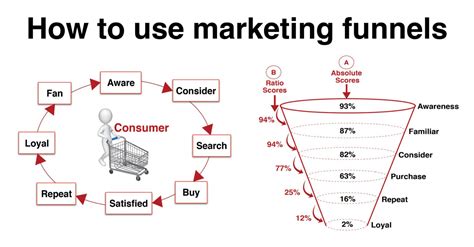 Marketing Funnel Optimization: Maximizing Conversion Rates and Revenue
22 December 2023 by Admin
Marketing Funnel Optimization: Maximizing Conversion Rates and Revenue
22 December 2023 by Admin
Marketing funnel optimization is a crucial aspect of any successful marketing strategy. It involves analyzing and improving each stage of the marketing funnel to maximize conversion rates and revenue....
 Marketing Automation Tools: Revolutionizing the Way Businesses Connect with Customers
22 December 2023 by Admin
Marketing Automation Tools: Revolutionizing the Way Businesses Connect with Customers
22 December 2023 by Admin
In today's digital age, businesses are constantly seeking innovative ways to streamline their marketing efforts and connect with customers more effectively. One such solution that has gained significa...
 Influencer Marketing Campaigns: A Powerful Strategy for Brand Promotion
22 December 2023 by Admin
Influencer Marketing Campaigns: A Powerful Strategy for Brand Promotion
22 December 2023 by Admin
In today's digital age, influencer marketing has emerged as one of the most effective strategies for brand promotion. With the rise of social media platforms, influencers have gained significant popul...
![The Complete List of Types of Marketing [30+ Effective Strategies]](/image/blogihisinfo/Video-marketing-strategies.jpg) Video Marketing Strategies: Boosting Your Business with Visual Content
22 December 2023 by Admin
Video Marketing Strategies: Boosting Your Business with Visual Content
22 December 2023 by Admin
In today's digital age, video marketing has become an essential tool for businesses to reach and engage with their target audience. With the rise of social media platforms and the increasing popularit...
 Mobile Marketing Trends: The Future of Digital Advertising
22 December 2023 by Admin
Mobile Marketing Trends: The Future of Digital Advertising
22 December 2023 by Admin
Mobile marketing has become an essential part of any successful digital advertising strategy. With the increasing use of smartphones and tablets, businesses are realizing the importance of reaching th...
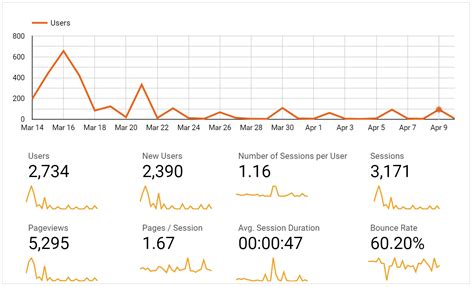 Digital Marketing Analytics: Unlocking the Power of Data
22 December 2023 by Admin
Digital Marketing Analytics: Unlocking the Power of Data
22 December 2023 by Admin
In today's digital age, businesses are constantly seeking ways to gain a competitive edge. One of the most effective strategies is leveraging digital marketing analytics to make data-driven decisions....
 E-commerce Marketing: Boosting Your Online Business
22 December 2023 by Admin
E-commerce Marketing: Boosting Your Online Business
22 December 2023 by Admin
E-commerce marketing has become an essential strategy for businesses looking to thrive in the digital age. With the rise of online shopping, it is crucial for companies to establish a strong online pr...
 Email Marketing Solutions: Boosting Your Business with Effective Communication
22 December 2023 by Admin
Email Marketing Solutions: Boosting Your Business with Effective Communication
22 December 2023 by Admin
In today's digital age, email marketing has become an essential tool for businesses to reach out to their target audience and promote their products or services. With the right email marketing solutio...
 Content Marketing Strategy: A Comprehensive Guide
22 December 2023 by Admin
Content Marketing Strategy: A Comprehensive Guide
22 December 2023 by Admin
Content marketing has become an essential component of any successful marketing strategy. It involves creating and distributing valuable, relevant, and consistent content to attract and retain a clear...
 Social Media Marketing Agency: Boosting Your Online Presence
22 December 2023 by Admin
Social Media Marketing Agency: Boosting Your Online Presence
22 December 2023 by Admin
In today's digital age, social media has become an integral part of our lives. It has transformed the way we communicate, connect, and consume information. With billions of active users on various soc...
 The Importance of Digital Marketing Services
22 December 2023 by Admin
The Importance of Digital Marketing Services
22 December 2023 by Admin
In today's digital age, businesses need to have a strong online presence in order to stay competitive. This is where digital marketing services come into play. Digital marketing encompasses a wide ran...
 The Rise of Big Data Analyst Jobs
22 December 2023 by Admin
The Rise of Big Data Analyst Jobs
22 December 2023 by Admin
In today's digital age, data has become one of the most valuable assets for businesses. With the increasing amount of information being generated every second, companies are now turning to big data an...
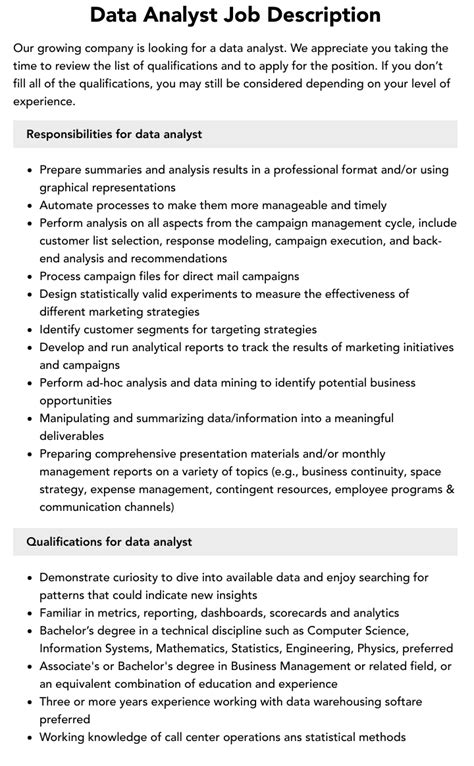 The Job Description of a Big Data Analyst
22 December 2023 by Admin
The Job Description of a Big Data Analyst
22 December 2023 by Admin
Big data has become an integral part of many industries, and companies are increasingly relying on data analysis to make informed decisions. As a result, the demand for big data analysts has grown sig...
 Big Data Analyst in Southwest
22 December 2023 by Admin
Big Data Analyst in Southwest
22 December 2023 by Admin
Big data has become an integral part of businesses across various industries. It refers to the massive volume of structured and unstructured data that organizations collect on a daily basis. This data...
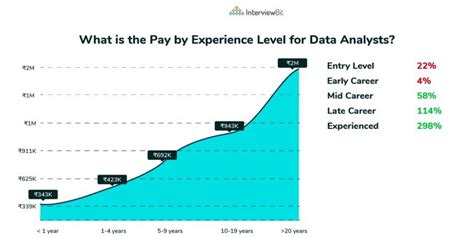 The Salary of a Big Data Analyst: Exploring the Lucrative Career Path
22 December 2023 by Admin
The Salary of a Big Data Analyst: Exploring the Lucrative Career Path
22 December 2023 by Admin
Big data has become an integral part of modern businesses, and the demand for skilled professionals who can analyze and interpret this vast amount of information is on the rise. One such profession th...
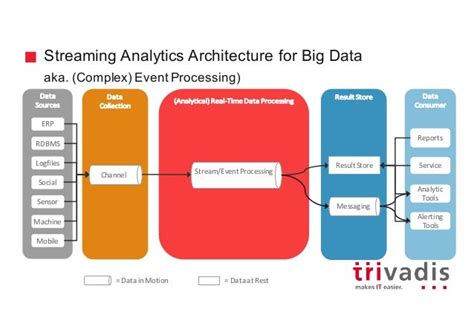 Big Data Analytics Architecture: Unlocking the Power of Data
22 December 2023 by Admin
Big Data Analytics Architecture: Unlocking the Power of Data
22 December 2023 by Admin
Big data analytics has emerged as a game-changer in today's data-driven world. With the exponential growth of data, organizations are realizing the need to harness the power of big data to gain valuab...
 Big Data Engineer vs Big Data Analyst: Understanding the Roles and Responsibilities
22 December 2023 by Admin
Big Data Engineer vs Big Data Analyst: Understanding the Roles and Responsibilities
22 December 2023 by Admin
In today's digital age, data has become the lifeblood of businesses across industries. The ability to collect, analyze, and derive insights from large volumes of data has become crucial for organizati...
 How to Become a Big Data Analyst
22 December 2023 by Admin
How to Become a Big Data Analyst
22 December 2023 by Admin
Big data has become an integral part of many industries, and the demand for skilled big data analysts is on the rise. These professionals are responsible for analyzing large sets of data to uncover pa...
 Big Data Analytics: Definition and Importance
22 December 2023 by Admin
Big Data Analytics: Definition and Importance
22 December 2023 by Admin
Big data analytics refers to the process of examining large and complex datasets to uncover hidden patterns, correlations, and other valuable insights. It involves the use of advanced analytics techni...
 Big Data Analytics Companies: Revolutionizing Data-driven Decision Making
22 December 2023 by Admin
Big Data Analytics Companies: Revolutionizing Data-driven Decision Making
22 December 2023 by Admin
In today's digital age, data is being generated at an unprecedented rate. From social media posts to online transactions, every interaction leaves a digital footprint. This massive amount of data, kno...
 Big Data Analytics Applications: Revolutionizing Industries
22 December 2023 by Admin
Big Data Analytics Applications: Revolutionizing Industries
22 December 2023 by Admin
Big data analytics has emerged as a game-changer in various industries, revolutionizing the way businesses operate and make decisions. With the exponential growth of data in today's digital world, org...
 Big Data Analyst at Southwest Airlines
22 December 2023 by Admin
Big Data Analyst at Southwest Airlines
22 December 2023 by Admin
Southwest Airlines is one of the largest low-cost carriers in the world, serving millions of passengers each year. With a commitment to providing excellent customer service and affordable travel optio...
 The Importance of Big Data Analyst Certification
22 December 2023 by Admin
The Importance of Big Data Analyst Certification
22 December 2023 by Admin
In today's digital age, data has become one of the most valuable assets for businesses. The ability to collect, analyze, and interpret large volumes of data has become crucial for making informed busi...
 Senior Big Data Analyst Certification: Unlocking the Power of Data
22 December 2023 by Admin
Senior Big Data Analyst Certification: Unlocking the Power of Data
22 December 2023 by Admin
In today's digital age, data has become the new currency. Organizations across industries are collecting vast amounts of data, but the real value lies in the ability to analyze and derive insights fro...
 The Role of Business Analyst in Big Data
22 December 2023 by Admin
The Role of Business Analyst in Big Data
22 December 2023 by Admin
Big data has become a buzzword in the business world, and organizations are increasingly relying on it to gain insights and make informed decisions. However, the sheer volume and complexity of big dat...